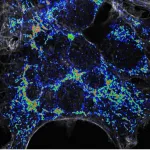(Press-News.org) Last month, OpenAI launched its newest AI chatbot product, GPT-4. According to the folks at OpenAI, the bot, which uses machine learning to generate natural language text, passed the bar exam with a score in the 90th percentile, passed 13 of 15 AP exams and got a nearly perfect score on the GRE Verbal test.
Inquiring minds at BYU and 186 other universities wanted to know how OpenAI’s tech would fare on accounting exams. So, they put the original version, ChatGPT, to the test. The researchers say that while it still has work to do in the realm of accounting, it’s a game changer that will change the way everyone teaches and learns — for the better.
“When this technology first came out, everyone was worried that students could now use it to cheat,” said lead study author David Wood, a BYU professor of accounting. “But opportunities to cheat have always existed. So for us, we’re trying to focus on what we can do with this technology now that we couldn’t do before to improve the teaching process for faculty and the learning process for students. Testing it out was eye-opening.”
Since its debut in November 2022, ChatGPT has become the fastest growing technology platform ever, reaching 100 million users in under two months. In response to intense debate about how models like ChatGPT should factor into education, Wood decided to recruit as many professors as possible to see how the AI fared against actual university accounting students.
His co-author recruiting pitch on social media exploded: 327 co-authors from 186 educational institutions in 14 countries participated in the research, contributing 25,181 classroom accounting exam questions. They also recruited undergrad BYU students (including Wood’s daughter, Jessica) to feed another 2,268 textbook test bank questions to ChatGPT. The questions covered accounting information systems (AIS), auditing, financial accounting, managerial accounting and tax, and varied in difficulty and type (true/false, multiple choice, short answer, etc.).
Although ChatGPT’s performance was impressive, the students performed better. Students scored an overall average of 76.7%, compared to ChatGPT’s score of 47.4%. On a 11.3% of questions, ChatGPT scored higher than the student average, doing particularly well on AIS and auditing. But the AI bot did worse on tax, financial, and managerial assessments, possibly because ChatGPT struggled with the mathematical processes required for the latter type.
When it came to question type, ChatGPT did better on true/false questions (68.7% correct) and multiple-choice questions (59.5%), but struggled with short-answer questions (between 28.7% and 39.1%). In general, higher-order questions were harder for ChatGPT to answer. In fact, sometimes ChatGPT would provide authoritative written descriptions for incorrect answers, or answer the same question different ways.
“It’s not perfect; you’re not going to be using it for everything,” said Jessica Wood, currently a freshman at BYU. “Trying to learn solely by using ChatGPT is a fool’s errand.”
The researchers also uncovered some other fascinating trends through the study, including:
ChatGPT doesn’t always recognize when it is doing math and makes nonsensical errors such as adding two numbers in a subtraction problem, or dividing numbers incorrectly.
ChatGPT often provides explanations for its answers, even if they are incorrect. Other times, ChatGPT’s descriptions are accurate, but it will then proceed to select the wrong multiple-choice answer.
ChatGPT sometimes makes up facts. For example, when providing a reference, it generates a real-looking reference that is completely fabricated. The work and sometimes the authors do not even exist.
That said, authors fully expect GPT-4 to improve exponentially on the accounting questions posed in their study, and the issues mentioned above. What they find most promising is how the chatbot can help improve teaching and learning, including the ability to design and test assignments, or perhaps be used for drafting portions of a project.
“It’s an opportunity to reflect on whether we are teaching value-added information or not,” said study coauthor and fellow BYU accounting professor Melissa Larson. “This is a disruption, and we need to assess where we go from here. Of course, I’m still going to have TAs, but this is going to force us to use them in different ways.”
END
ChatGPT is still no match for humans when it comes to accounting
Massive crowd-sourced study comes from 327 co-authors at 186 institutions from 14 countries
2023-04-20
ELSE PRESS RELEASES FROM THIS DATE:
Researchers reveal a map to study novel form of cell-to-cell communication
2023-04-20
An international team led by researchers at Baylor College of Medicine with the National Institutes of Health Extracellular RNA Communication Consortium and the Bogdan Mateescu laboratory at the ETH Zürich and University of Zürich has developed a new powerful resource to study extracellular RNA (exRNA), a novel form of cell-to-cell communication. The study, published in the journal Cell Genomics, lays the foundation to examine how exRNA and its carrier proteins found in bodily fluids function in a healthy as well as a diseased setting, potentially providing a means to accurately implement early ...
ORNL’s Lupini elected fellow of the Microscopy Society of America
2023-04-20
Andrew Lupini, a scientist and inventor at the Department of Energy’s Oak Ridge National Laboratory, has been elected Fellow of the Microscopy Society of America.
MSA fellows are senior distinguished members who have made significant contributions to the advancement of microscopy and microanalysis through scientific achievement and service to the scientific community and the society. Lupini was one of only four scientists named an MSA Fellow this year.
Lupini was cited “for foundational contribution of theory and practice ...
Purdue Ventures invests in antibody-based cancer therapeutics company
2023-04-20
WEST LAFAYETTE, Ind. – Purdue Ventures, which manages three funds to support Purdue University-connected startups, has invested $250,000 in TRIO Pharmaceuticals Inc., a cancer immunotherapeutics startup founded by a Purdue University biophysics and structural biology alumnus. The company’s antibody-based therapeutics strengthens the body’s defense, the immune system, to eradicate cancer.
Purdue Ventures’ investment is part of a larger $2.2 million series seed-funding ...
Jefferson Lab stays gold by staying green
2023-04-20
NEWPORT NEWS, VA – Finding ways to purchase sustainable products for the work of science has yielded another golden award. The U.S. Department of Energy's Thomas Jefferson National Accelerator Facility has been recognized with a gold-level GreenBuy Award for its purchase of environmentally friendly products in fiscal year 2022.
The GreenBuy Award Program honors DOE sites that go beyond the minimum requirements for purchasing products that are energy efficient, water efficient and recycled. Participating sites can qualify for three levels of the award: gold, silver and bronze.
“The award is to show our mindset is ...
Evolution of two contagious cancers affecting Tasmanian devils underlines unpredictability of disease threat
2023-04-20
PRESS RELEASE FROM THE UNIVERSITY OF CAMBRIDGE
EMBARGOED UNTIL 19:00 BST LONDON TIME/14:00 US EASTERN TIME THURSDAY, 20 APRIL 2023
Paper and photos available at: https://drive.google.com/drive/folders/1YaEEaTCCMRt85NXmCSpeO15YOrIRaXpO?usp=share_link
Transmissible cancers, which occur only rarely in the animal kingdom, are spread by the transfer of living cancer cells. In the case of Tasmanian devils, the cells are transferred through biting – a behaviour that is common in devils especially in fights over mates and food.
Tasmanian devils are susceptible to two fatal transmissible cancers called devil facial ...
A gene involved in Down syndrome puts the brakes on neurons' activity in mice, new study shows
2023-04-20
Researchers from the University of Michigan have found that an extra copy of a gene in Down syndrome patients causes improper development of neurons in mice.
The gene in question, called Down syndrome cell adhesion molecule, or DSCAM, is also implicated in other human neurological conditions, including autism spectrum disorders, bipolar disorder and intractable epilepsy.
The cause of Down syndrome is known to be an extra copy of chromosome 21, or trisomy 21. But because this ...
Cracking the case of mitochondrial repair and replacement in metabolic stress
2023-04-20
LA JOLLA (April 20, 2023)—Scientists often act as detectives, piecing together clues that alone may seem meaningless but together crack the case. Professor Reuben Shaw has spent nearly two decades piecing together such clues to understand the cellular response to metabolic stress, which occurs when cellular energy levels dip. Whether energy levels fall because the cell’s powerhouses (mitochondria) are failing or due to a lack of necessary energy-making supplies, the response is the same: get rid of the damaged mitochondria and create new ones.
Now, in a study published in Science on April 20, 2023, Shaw and team cracked ...
The climate crisis and biodiversity crisis can’t be approached as two separate things
2023-04-20
Human beings have massively changed the Earth system. Greenhouse-gas emissions produced by human activities have caused the global mean temperature to rise by more than 1.1 degrees Celsius compared to the preindustrial era. And every year, there are additional emissions of carbon dioxide, methane and other greenhouse gases, currently amounting to more than 55 gigatonnes of carbon dioxide equivalent. This unprecedented climate crisis has consequences for the entire planet – the distribution of precipitation ...
Economic growth alone is not enough to eliminate rabies
2023-04-20
Economic growth alone may not be enough to deliver the internationally agreed target to end human deaths from dog mediated rabies, according to new research from the University of Surrey. The study identifies that targeting vulnerable populations and improving responsible pet ownership are urgently needed to eradicate the deadly disease, which has strong associations with poverty.
In a landmark study, Surrey researchers investigated whether incidences of rabies are an inevitable consequence of poverty or whether other measures of development, such as healthcare access, can play a role in tackling this preventable disease.
Dr ...
PLOS Genetics to launch Microbial Section
2023-04-20
SAN FRANCISCO — PLOS today announced that PLOS Genetics is expanding the scope of its journal with a renamed section called Microbial Genetics. This section will replace the former Prokaryotic Genetics section to emphasize research on microbes more broadly with the aim to publish studies that use genetic approaches to provide insights into how bacteria as well as archaea and their phages/viruses, fungi (including yeasts and filamentous fungi), and protists function and interact with the biotic and abiotic world.
PLOS Genetics has an established presence in the fungal genetics community, but this ...
LAST 30 PRESS RELEASES:
ASU researchers to lead AAAS panel on water insecurity in the United States
ASU professor Anne Stone to present at AAAS Conference in Phoenix on ancient origins of modern disease
Proposals for exploring viruses and skin as the next experimental quantum frontiers share US$30,000 science award
ASU researchers showcase scalable tech solutions for older adults living alone with cognitive decline at AAAS 2026
Scientists identify smooth regional trends in fruit fly survival strategies
Antipathy toward snakes? Your parents likely talked you into that at an early age
Sylvester Cancer Tip Sheet for Feb. 2026
Online exposure to medical misinformation concentrated among older adults
Telehealth improves access to genetic services for adult survivors of childhood cancers
Outdated mortality benchmarks risk missing early signs of famine and delay recognizing mass starvation
Newly discovered bacterium converts carbon dioxide into chemicals using electricity
Flipping and reversing mini-proteins could improve disease treatment
Scientists reveal major hidden source of atmospheric nitrogen pollution in fragile lake basin
Biochar emerges as a powerful tool for soil carbon neutrality and climate mitigation
Tiny cell messengers show big promise for safer protein and gene delivery
AMS releases statement regarding the decision to rescind EPA’s 2009 Endangerment Finding
Parents’ alcohol and drug use influences their children’s consumption, research shows
Modular assembly of chiral nitrogen-bridged rings achieved by palladium-catalyzed diastereoselective and enantioselective cascade cyclization reactions
Promoting civic engagement
AMS Science Preview: Hurricane slowdown, school snow days
Deforestation in the Amazon raises the surface temperature by 3 °C during the dry season
Model more accurately maps the impact of frost on corn crops
How did humans develop sharp vision? Lab-grown retinas show likely answer
Sour grapes? Taste, experience of sour foods depends on individual consumer
At AAAS, professor Krystal Tsosie argues the future of science must be Indigenous-led
From the lab to the living room: Decoding Parkinson’s patients movements in the real world
Research advances in porous materials, as highlighted in the 2025 Nobel Prize in Chemistry
Sally C. Morton, executive vice president of ASU Knowledge Enterprise, presents a bold and practical framework for moving research from discovery to real-world impact
Biochemical parameters in patients with diabetic nephropathy versus individuals with diabetes alone, non-diabetic nephropathy, and healthy controls
Muscular strength and mortality in women ages 63 to 99
[Press-News.org] ChatGPT is still no match for humans when it comes to accountingMassive crowd-sourced study comes from 327 co-authors at 186 institutions from 14 countries




